Innovation at Purdue news
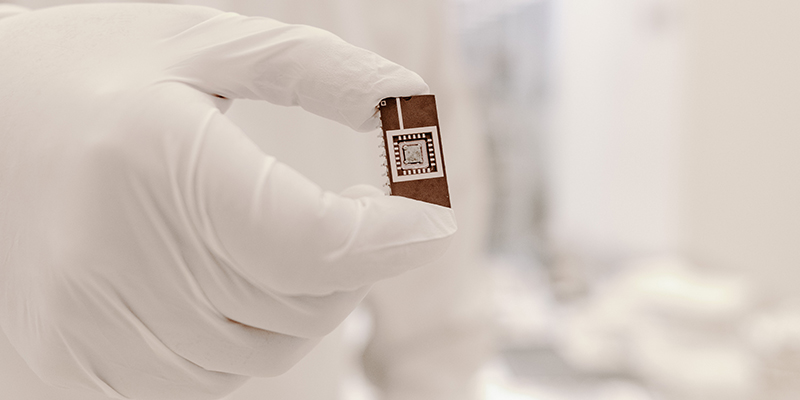 Purdue establishes an international footprint in chip technology and workforce innovation
Purdue establishes an international footprint in chip technology and workforce innovation
Purdue University forges the future of the microelectronics industry, making new partners around the world and expanding its persistent pursuit of microchip advancement through the innovations, partnerships and programs highlighted in this roundup. If you have any questions or would like to speak to a Purdue expert, contact Brian Huchel, bhuchel@purdue.edu.
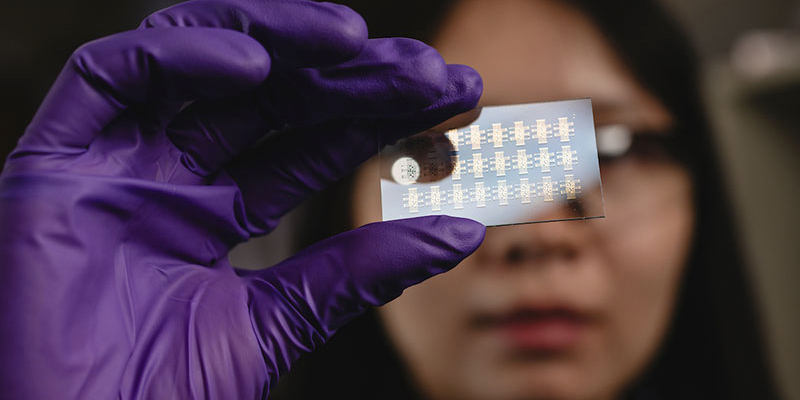 Researchers look to the human eye to boost computer vision efficiency
Researchers look to the human eye to boost computer vision efficiency
Conventional silicon architecture has taken computer vision a long way, but Purdue University researchers are developing an alternative path — taking a cue from nature — that they say is the foundation of an artificial retina. Like our own visual system, the device is geared to sense change, making it more efficient in principle than the computationally demanding digital camera systems used in applications like self-driving cars and autonomous robots.
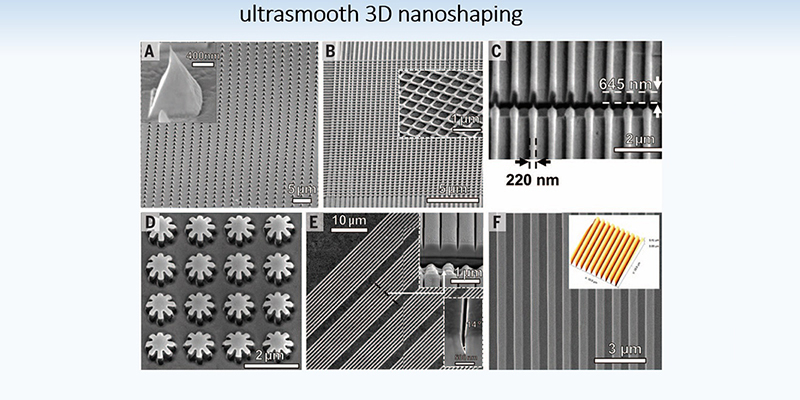 Purdue laser innovations unleash precision, potential in laser-material interactions
Purdue laser innovations unleash precision, potential in laser-material interactions
Industrial manufacturers and academic researchers can use patented, innovative laser techniques developed at Purdue University to produce high-tech materials such as semiconductor oxide thin films and metals with high performance under extreme conditions and conduct ultrafine-scale manipulation of physical properties in nanomaterials.
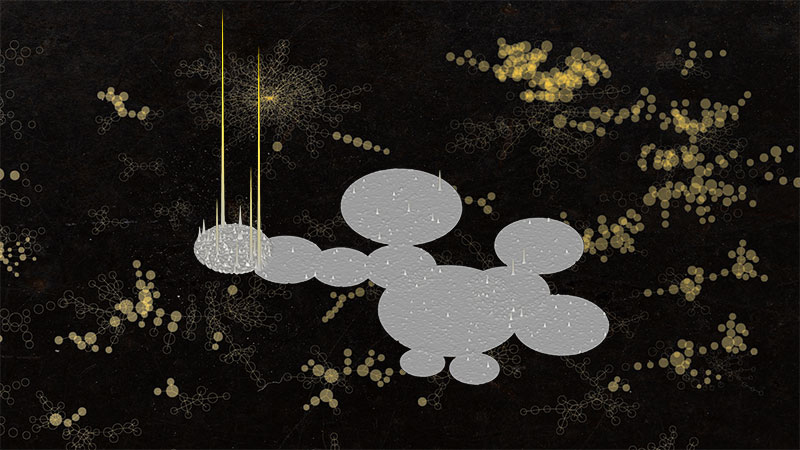 The mind’s eye of a neural network system
The mind’s eye of a neural network system
In the background of image recognition software that can ID our friends on social media and wildflowers in our yard are neural networks, a type of artificial intelligence inspired by how own our brains process data. While neural networks sprint through data, their architecture makes it difficult to trace the origin of errors that are obvious to humans — like confusing a Converse high-top with an ankle boot — limiting their use in more vital work like health care image analysis or research. A new tool developed at Purdue University makes finding those errors as simple as spotting mountaintops from an airplane.
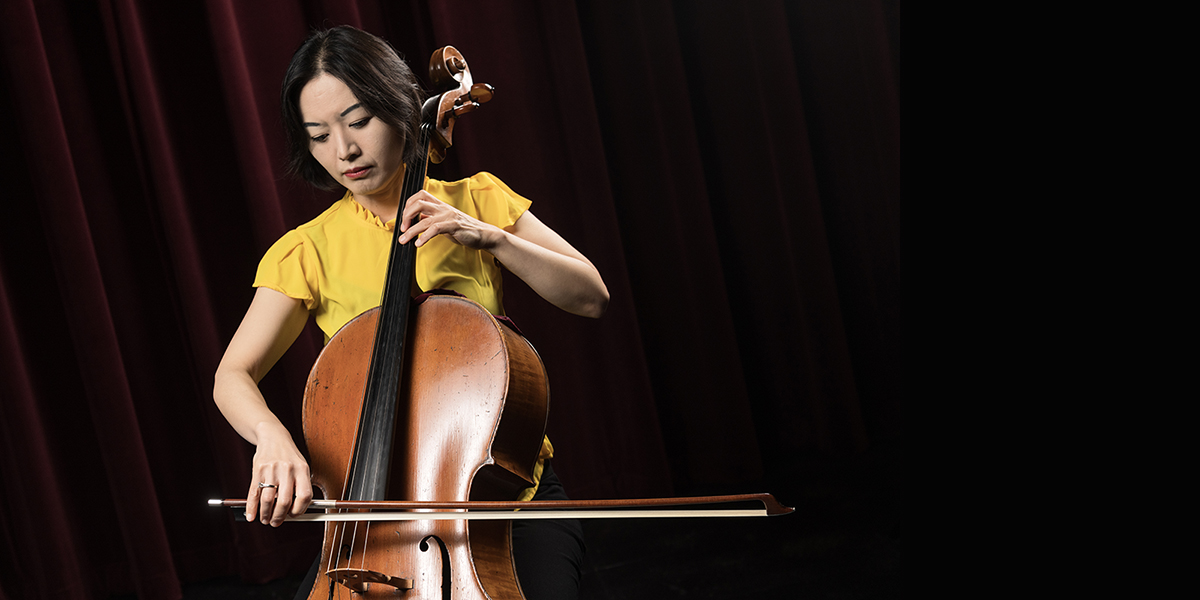 AI knows the score — and it could help instrumentalists make beautiful music
AI knows the score — and it could help instrumentalists make beautiful music
Purdue University is putting artificial intelligence center stage with novel research examining the technology’s potential to improve musical performance, both on an individual and group level.
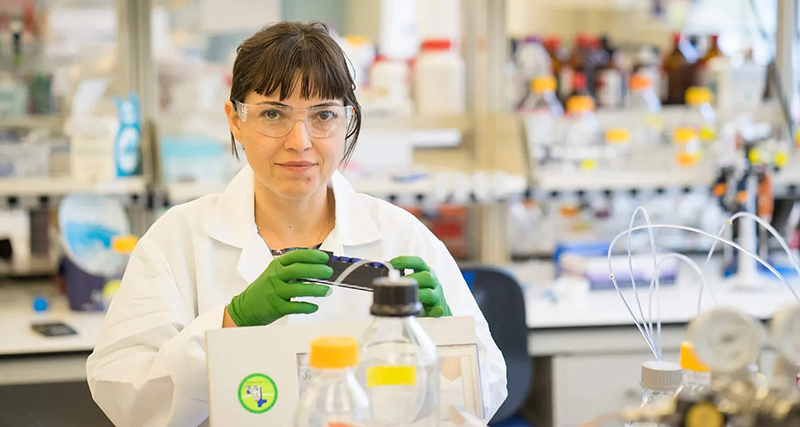 Purdue lipid biomarker panels perform real-time, point-of-care sample analysis in industrial and agricultural settings
Purdue lipid biomarker panels perform real-time, point-of-care sample analysis in industrial and agricultural settings
Purdue University researchers are using mass spectrometry, a century-old analytical technique performed by experts in a laboratory, to monitor and analyze patterns of molecules in real-time, point-of-care applications in industrial and agricultural settings by nonexpert users.
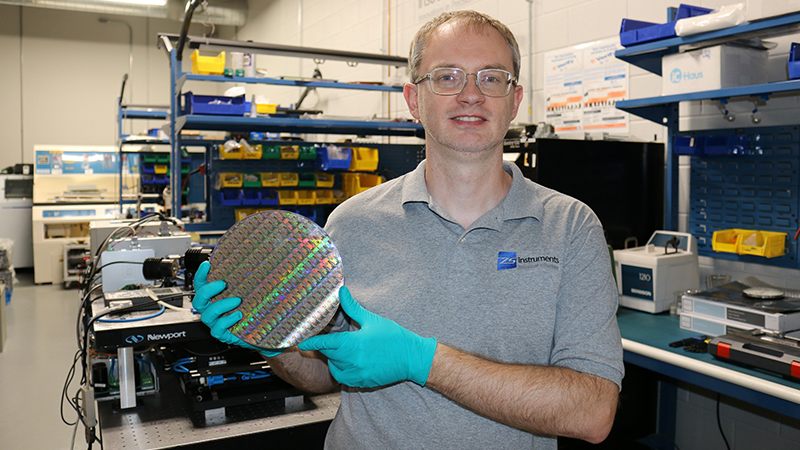 ZS Instruments receives $1M grant to develop advanced lithography tech for precision optical encoders
ZS Instruments receives $1M grant to develop advanced lithography tech for precision optical encoders
A Purdue University-connected startup has received federal funding to innovate an industry projected to reach $4.4 billion by 2028. The funding will be used to improve the manufacture of sensors used in semiconductor fabrication and inspection, precision machining equipment, UAV guidance and tracking systems, medical imaging equipment, industrial robots, and measuring instruments.